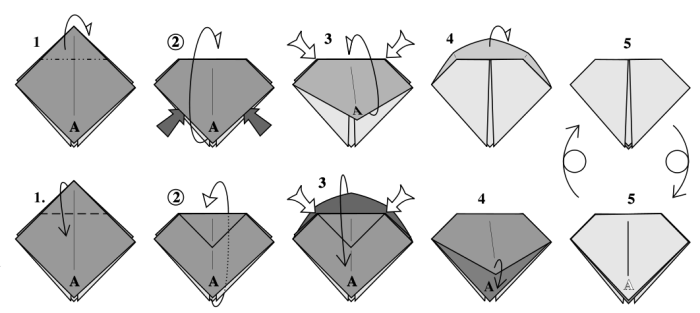The different folds used to make an origami are not infinite. These folds have been listed and are often classified into three levels of difficulty. Like symbols, the basic origami folds must be well known to make it easier to read a diagram (description of how to make an origami). On this page, we present these different basic folds in increasing order of difficulty.
Simple Folds
The valley fold is a concave fold: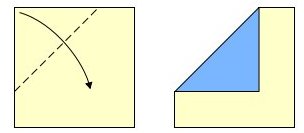 or
or 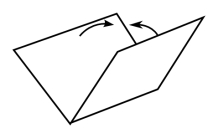
The mountain fold is a ridge fold, the opposite of the valley fold: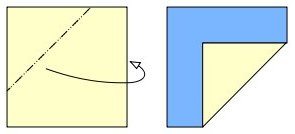 or
or 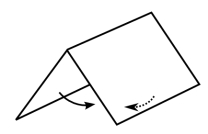
The zig-zag fold is an accordion fold: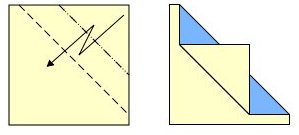 or
or 
The repeat fold is a fold that is redone exactly:
Intermediate Folds
The inside reverse fold is a fold inside a ridge: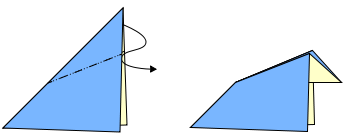 or
or 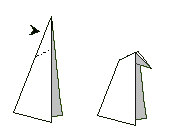
The outside reverse fold is the opposite of a ridge fold: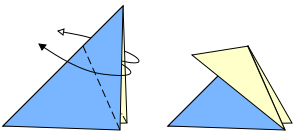 or
or 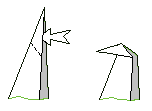
The double inside reverse fold is a double fold inside ridges: or
or 
The double outside reverse fold is a double fold outside ridges: or
or 
The "rabbit ear" fold involves pinching a corner along its bisector to form a point: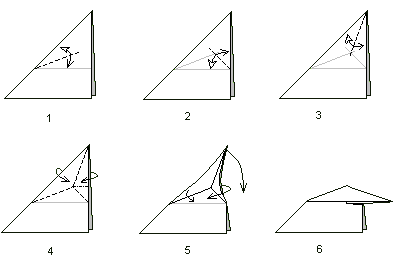
The squash fold involves opening the paper and then flattening it: or
or 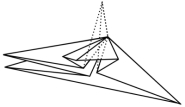
The petal fold is made from a squash fold. Mark the sides, lift a point, fold it back, and flatten the sides: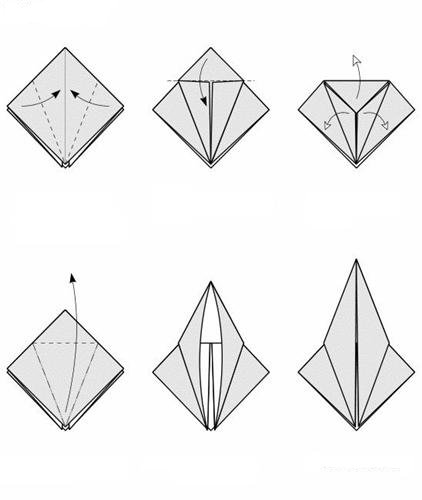
Complex Folds
The "double rabbit ear" fold involves making a double rabbit ear inside a ridge: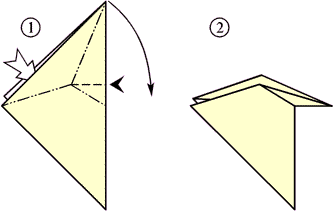
The swivel fold is also called a "turning fold":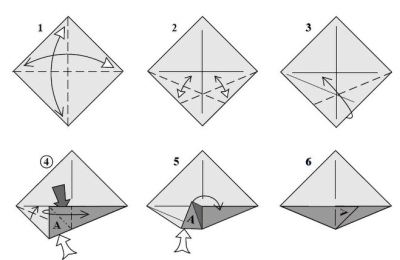
The open sink fold starts from the base of the water bomb. Make a lengthwise fold (1). Open the paper by pushing down the top (2) to form a small table (3), then remake the water bomb base while keeping the point down: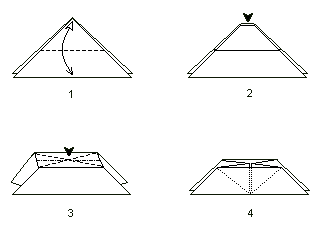
The closed sink fold starts like the open sink fold but opens only one side (the other remains attached to the two inner folds). Fold the point to the side of the open flap. This way, the point locks the two inner folds: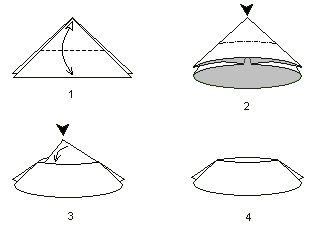
The wrap fold involves wrapping part of the origami. The first line shows a wrap fold from the front, and the second line shows a wrap fold from the back: